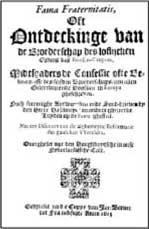Resources
Call for Papers
Dissertation Search Service
ProQuest Digital Dissertations
Research Links
Oxford
Perseus Electronic texts at Tufts
Yale
Michigan State
CIIS
GTU
Sacred Texts Archive of online books about Religion, Mythology, Folklore, and the Esoteric
Internet History Sourcebooks Project (Fordham)
USF (includes Pacific Rim Institute)
Association for the Study of Esotericism
Esoterica Journal
Charter of Transdisciplinarity (CIRET)
Historical Materials on Rosicrucianism (English)
Historical Materials on Martinism (English)
Historical Essays on Martinism (French)
Historical Essays on Rosicrucianism (French)
École Pratique des Hautes Études (Sorbonne)
University of Amsterdam: Hermetic Studies
Alternative Spiritualities and New Age Studie
Rosicrucian Documents
Fama Fraternitatis
Included here is the text of the first Rosicrucian manifesto, the Fama Fraternitatis or, a DISCOVERY of the Fraternity of the Most Laudable Order of the Rosy Cross as translated by Thomas Vaughan (Eugenius Philalethes). This is version is presented as it was reprinted in the Rosicrucian Digest, Volume 82, number 1 published Spring 2004.
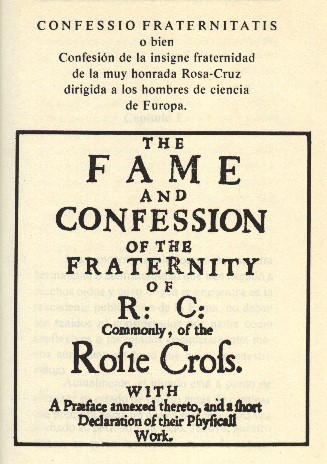 Confessio Fraternitatis
Confessio Fraternitatis
The Confessio Fraternitatis is the second Rosicrucian manifesto, published first in 1615 in Latin (along with the Consideratio brevis) and later that year in German. Although some English translation manuscript copies have been discovered dating from the 1620's, a complete English version was not published till 1652. Thomas Vaughan, the alchemical writer translated this first English edition.
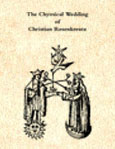 Chymical Wedding of Christian Rosenkreutz
Chymical Wedding of Christian Rosenkreutz
The Chymical Wedding of Christian Rosenkreutz is the third Rosicrucian manifesto and written in a style that is very different from the two first Manifestos (The Fama Fraternitatis & the Confessio Fraternitatis). It describes a journey of initiation that represents the quest for Illumination. This seven-day journey mainly takes place in a mysterious castle where the Wedding of a king and a queen is to be celebrated. Symbolically the "Chymical Wedding" describes the spiritual progression bringing the Initiate to achieve union between his soul (the bride) and God (the groom).
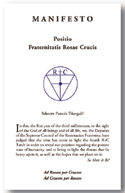 Positio Fraternitatis Rosae Crucis
Positio Fraternitatis Rosae Crucis
The Rosicrucian World Convention in Sweden in August 2001 reflected a theme of world peace and harmony among all nations and peoples. It was at this convention that Rosicrucian Imperator Christian Bernard introduced the Positio Fraternitatis Rosae Crucis, a document informing the public of AMORC’s position regarding today’s world situation, the dangers threatening it, and the future prospects we wish for all. We hope that you will read the Positio with an open mind and that it will strike a responsive chord within your consciousness.
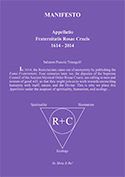 Appellatio Fraternitatis Rosae Crucis
Appellatio Fraternitatis Rosae Crucis
On the 400th Anniversary of the publication of the first Rosicrucian Manifesto, the Fama Fraternitatis, in 1614, the Rosicrucians publish the fifth Rosicrucian Manifesto - the Appellatio Fraternitatis Rosae Crucis - an Appeal for Ecology, Humanism, and Spirituality.
Join in this important work and help to spread this call for action to others, for the good of all humanity, all beings, and our planet!
Your participation makes a world of difference!
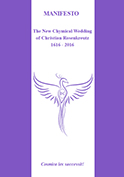 The New Chymical Wedding of Christian Rosenkruetz
The New Chymical Wedding of Christian Rosenkruetz
Inspired by the third Rosicrucian manifesto, the Chymical Wedding of Christian Rosenkreutz, published four hundred years ago, the anonymous author of this Rosicrucian manifesto (number six) leads us toward the vision of a better world through an alchemical dream.
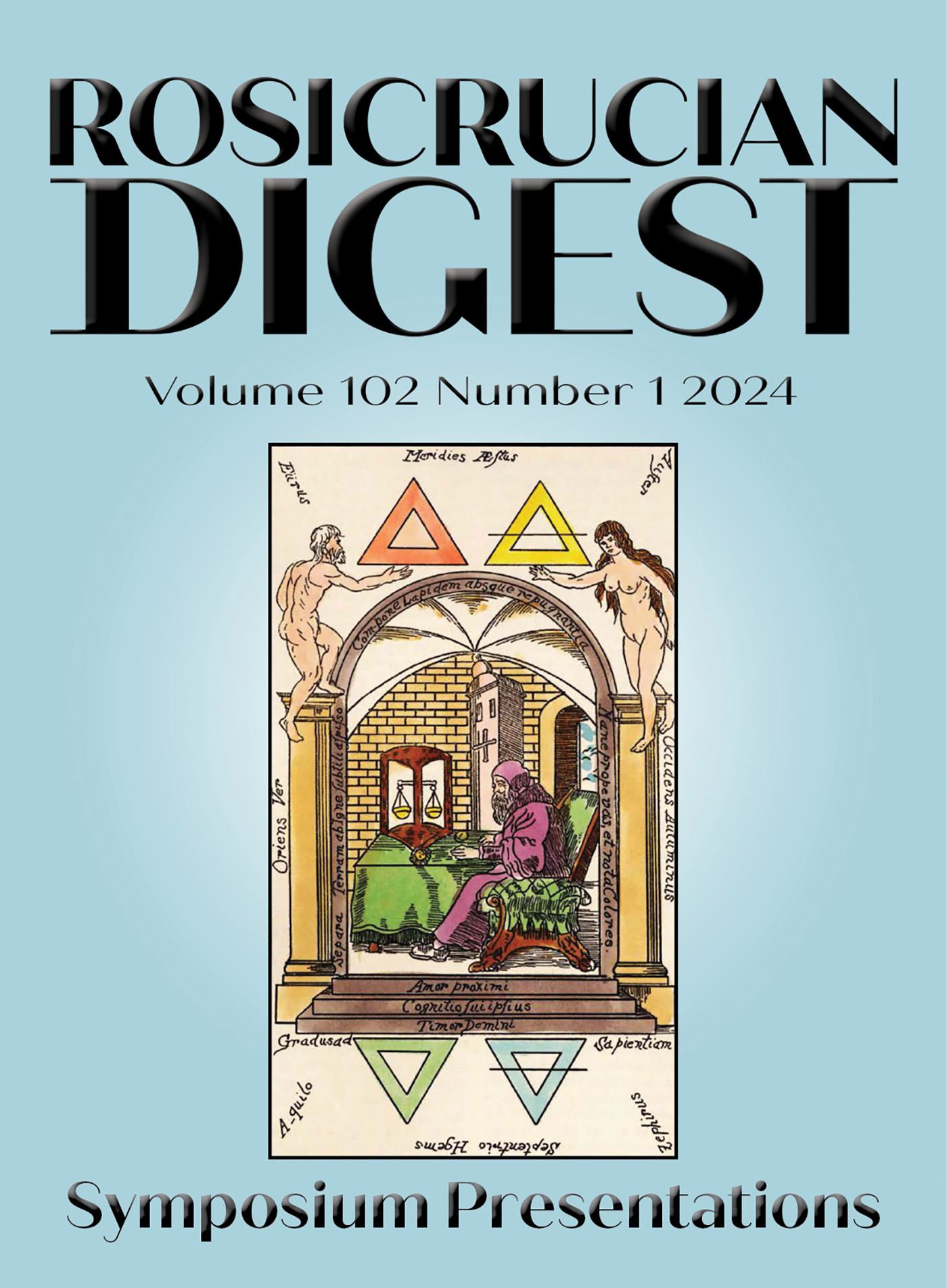 Rosicrucian Digest
Rosicrucian Digest
The official magazine of the Rosicrucian Order, the Rosicrucian Digest is a bi-annual magazine featuring informative articles on mysticism, philosophy, the sciences, and the arts. The magazine is given to members as part of their membership benefits and is also available to the reading public on a subscription basis. Published continuously since 1915, the Digest is a truly unique magazine, and its carefully selected articles are of particular interest to Rosicrucians and their friends.
How to submit an article to the Digest.
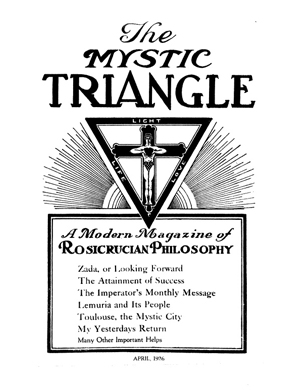 Mystic Triangle
Mystic Triangle
The Rosicrucian Digest was called the Mystic Triangle in the early years. Read them here.
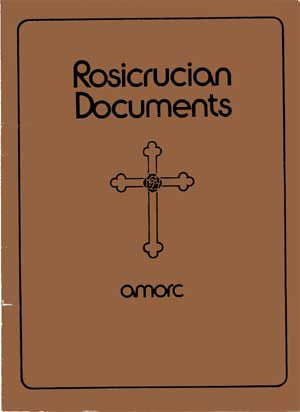 Rosicrucian Archival Documents
Rosicrucian Archival Documents
Prepared by the Supreme Grand Lodge of AMORC, this book contains reproductions of original documents referring to the authority, recognition, affiliation, and administration of the Rosicrucian Order, AMORC. The complete collection of original documents are numerous and are currently stored in the archives of the Order. This book contains the most important and representative examples and is divided into the following sections: Averment; Authority & Organization; Affiliation; Recognition; Administration; and Honorable Mention.
Secret Symbols of the Rosicrucians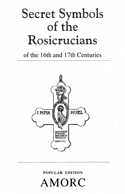
Between 1785 and 1788 an unknown Rosicrucian compiled text and images from earlier materials (1621, 1625 and 1700) that deal with Alchemy, Mysticism and other Rosicrucian themes. It was first published in two parts in Altona, Germany. A copy of this work was in the library of the Rosicrucian/Pietist mission to Pennsylvania that became the Ephrata Cloister. The present edition provides translations of the original German text, as well as reproducing the images, which are most suitable for meditation.

